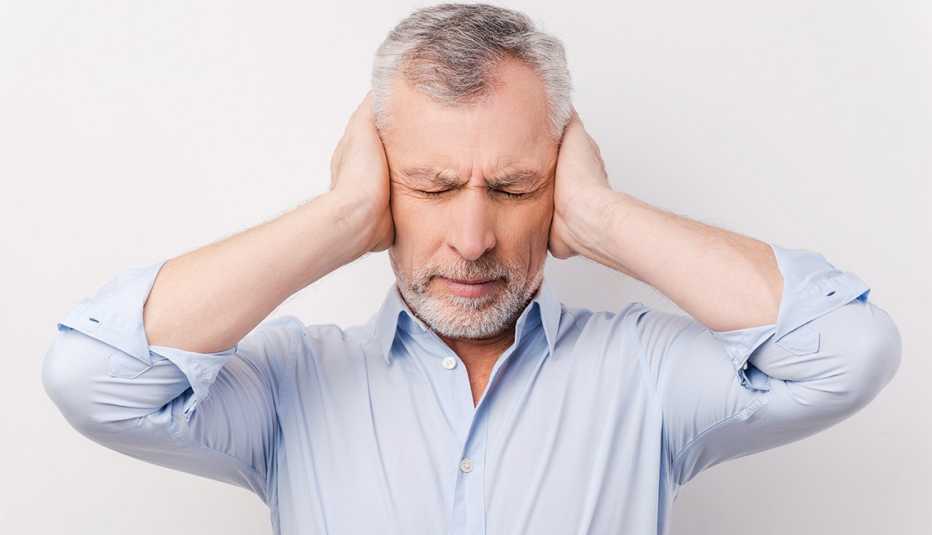AARP Hearing Center


The sound of a jackhammer drilling into a nearby sidewalk or the next-door neighbor's leaf blower may not be music to anyone's ears. But for those suffering from hyperacusis, a hearing disorder characterized by an unusual sensitivity to certain sounds, even noises that aren't ear-splitters for most people can be hard to take. Indeed, some of those plagued with this condition are unable to tolerate the kinds of ordinary, everyday sounds that the rest of us wouldn't even notice.
It's common for noise to become more bothersome with age. The auditory cortex, which processes sound in the brain, is more easily overwhelmed when there's an overload of noise. This can lead to something called “listening fatigue” and problems hearing.
Hyperacusis is more severe. Thought to affect 1 in 50,000 adults (though many experts suspect the actual number may be much higher because some might not know to seek treatment), it's experienced by people in different ways. Some say moderately or mildly intense sounds are uncomfortably loud. Others are irritated by certain types of noise — say, a baby crying in a restaurant or the sound of their dinner companion's chewing. Complicating the discomfort: It's often accompanied by tinnitus, a common condition in which people hear a ringing or buzzing in the ear.
"For some, it isn't a major issue — they just note that specific sounds are loud or annoying,” says Richard Tyler, a psychoacoustician-audiologist and professor of otolaryngology and communication sciences and disorders at the University of Iowa's Carver College of Medicine. “Others find it difficult to live with. It impacts their everyday life to the point that it becomes highly debilitating.... They cover their ears and wear earplugs all the time.”
People's trigger sounds vary, but common irritants include the sound of dishes clanging together in the kitchen or knives and forks hitting plates. Tyler says one patient told him, “Setting a coffee mug on a wooden table feels like a thumb pressing hard on a broken bone deep in my ear.”
"A grocery store, with the beeping of registers and extraneous noise of carts, is a place that many people with sound sensitivity end up avoiding altogether,” says Kaela Fasman, an audiologist at Sound Relief Hearing Center in Golden, Colorado. But it may also be sounds with “rapid rise time” — for example, a firetruck racing by, with sirens blaring, says Tyler.
It can take a serious emotional and psychological toll, bringing on bouts of depression, anxiety, stress or panic attacks.



































































More on Health
Memory Problems Linked to Hearing Loss in Older Adults
Study also cites reduced social activity, psychological stress
Do You Have Hidden Hearing Loss?
Long exposure to even low-level noise may cause this underdiagnosed disorder